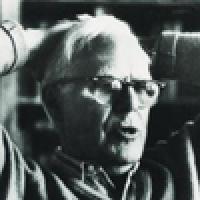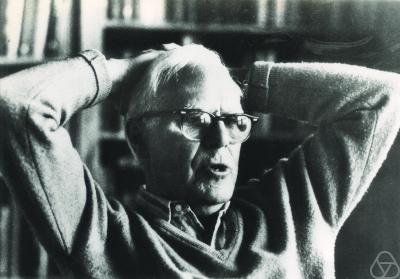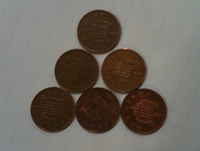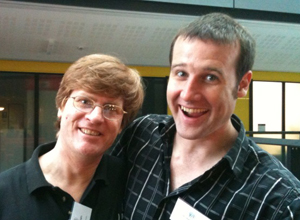
Is the magic over?

Martin Gardner
The shadow of the late Martin Gardner looms large in Manchester this week as the workshop How to talk maths in public, organised by the Institute of Mathematics and its Applications, draws to a close. The question on everyone's mind is "who will fill the enormous hole left by his absence"?
It is not an exaggeration to say that Martin Gardner single-handedly reinvented recreational mathematics for the 20th century. His Mathematical Games column, published in Scientific American, spanned nearly three decades of wide ranging articles which introduced the beauty and elegance of mathematics to a lay audience. As Matt Parker, teacher and maths stand-up, said at the IMA workshop, "One of the amazing things about Gardner was that he was not a mathematician himself. He was a magician and a writer and he never really lost that outsider's perspective".
An example of the type of puzzle appearing in Gardner's Scientific American column is the famous six coins problem, in which you must rearrange a triangle made up of six coins into a hexagon, by moving one coin at a time, with each move leaving every coin touching at least two others, as seen in the picture.
 |  |
Gardner's columns covered all kinds of mathematics, from simple puzzles such as this to full and interesting discussions of important mathematical concepts, through the medium of tricks, puzzles and magic. But his interests were not limited to mathematics — he was also active in literature, writing annotated versions of Lewis Caroll's books, and actively combated pseudoscience, writing books of major influence in the skeptical movement. He was also fascinated by religion and philosophy.

Colin Wright and Matt Parker at the IMA Conference
on Public Engagement in Manchester, June 2010
"I think the gap to some extent will never be filled, but what is happening is that there is a growing group of people around that gap, which continues to grow," says Colin Wright, research and industrial mathematician who also regularly promotes maths to the public. Wright took part in the latest Gathering for Gardner in the USA, a puzzling event that is held in Gardner's honour in even-numbered years. He had the privilege of spending an afternoon with Gardner, presenting material from the gathering. Wright was clear about the importance of Gardner's work in the growth of his own mathematical enthusiasm. He was obviously moved when remembering Gardner's influence and the chance he had to chat to Martin only a few months before his death.
The overwhelming impression from the IMA workshop here in Manchester is that the Gardner legacy will live on. Everyone here is pursuing the same goal as Gardner was. Wright and Parker have taken another step of initiative and are organising an annual mathsjam. This will be the first event of its type in the UK to bring together people with an interest in magic, puzzles, recreational maths and the connection between them. Parker has organised small monthly events in London, which are now set to translate to the national stage.
So while the world of mathematics may have lost an icon, it has not lost its enthusiasm for communicating the beauty of its subject.
Further reading
- Wikipedia article about Martin Gardner
- IMA Conference on Public Engagement
- Gathering for Gardner 2010
- Mathsjam 2010
- Six Coin Sliding Puzzle - Solution from Alethis.net
Some of Gardner's books, and books inspired by him, have been reviewed on Plus:
- Mathematics, Magic and Mystery
- Origami, Eleusis and the Soma Cube
- A lifetime of puzzles, Homage to a pied puzzler and Mathematical wizardry for a Gardner
- Tribute to a mathemagician.